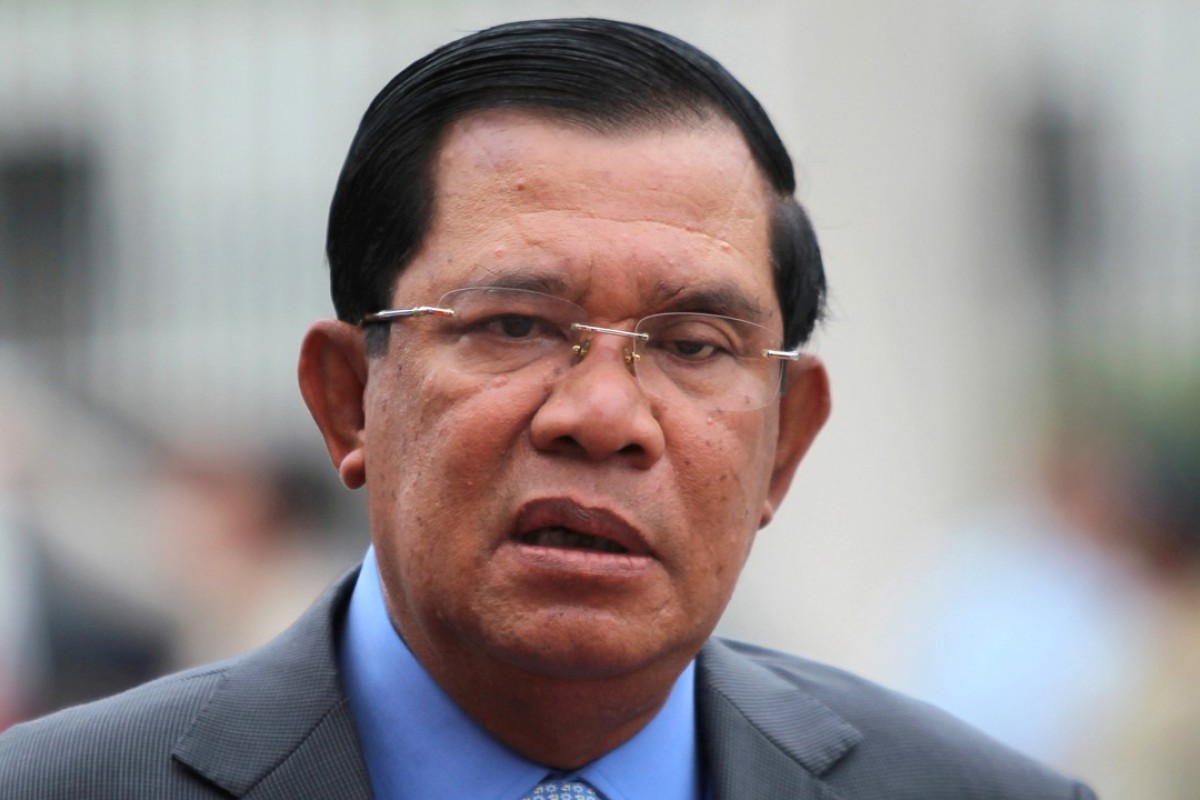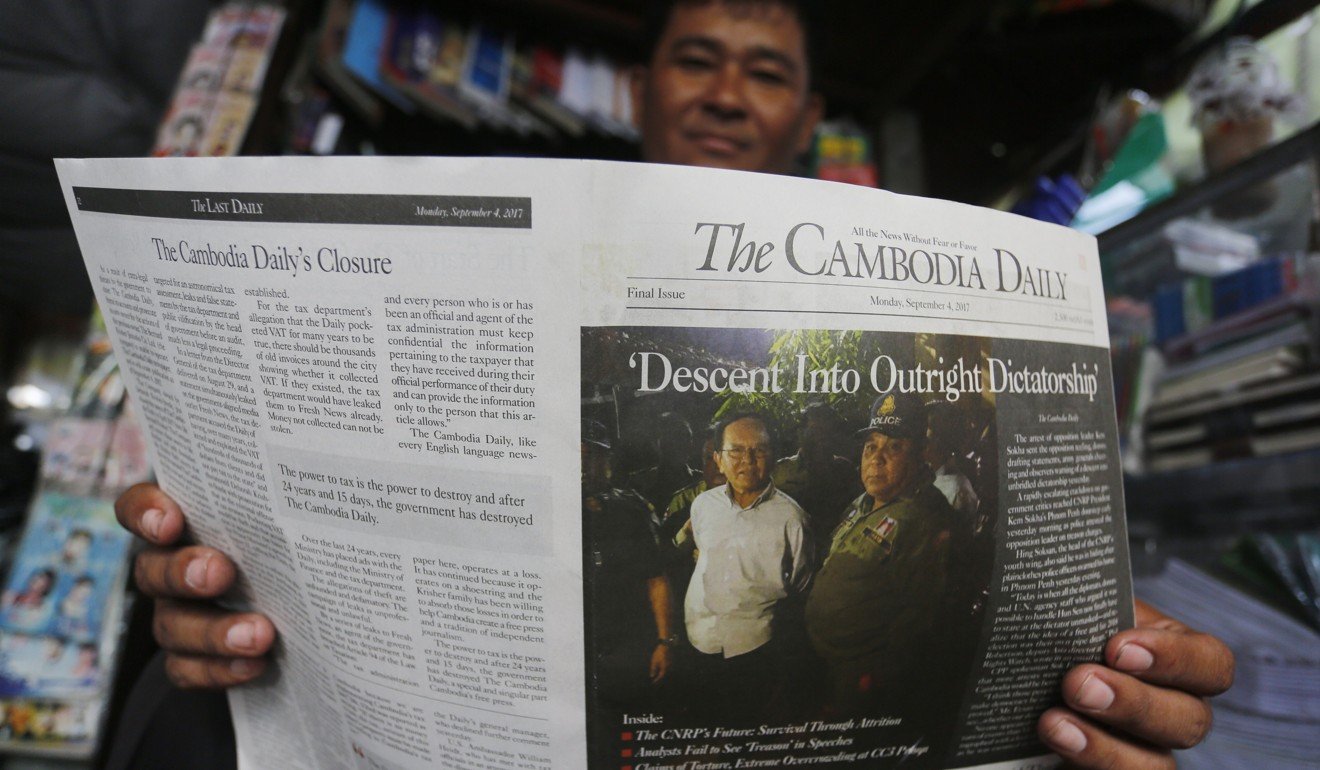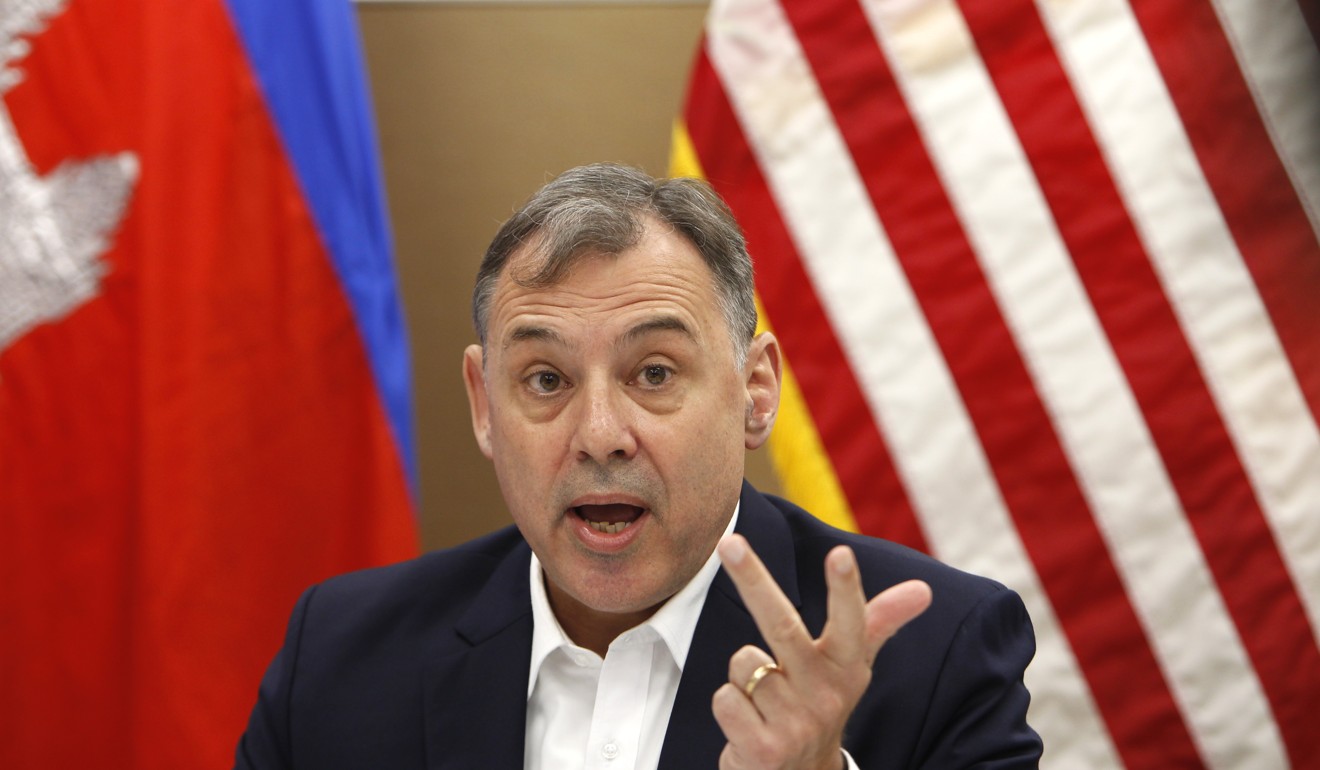 |
| Emboldened Cambodian strongman feels he no longer needs the West – but critics say he may have overestimated his leverage with his friend to the north |
HUN SEN COUNTS ON CHINA AS HE CRACKS DOWN IN CAMBODIA – HAS HE MISCALCULATED?
South China Morning Post | 17 September 2017
 |
| Hun Sen. Reuters |
Cambodian Prime Minister Hun Sen has upped the stakes in the country’s pivot to China, accusing the United States of conspiring to overthrow him as he escalates a crackdown on dissent with a view to extending his three decades in power.
Critics say Chinese support for Cambodia has emboldened Hun Sen as he takes unprecedented steps to silence his opponents, safe in the knowledge he no longer needs to keep Western donors happy.
Over the past month, Hun Sen’s ruling Cambodian People’s Party (CPP) has forced the closure of dozens of independent radio stations, English-language newspaper The Cambodia Daily and an American NGO and has jailed the country’s opposition leader, Kem Sokha, on treason charges. This week, tensions grew when Hun Sen accused the US of conspiring with the jailed opposition leader to overthrow his government.
Referring to Cambodia’s bloody military coup in 1970 – which the US supported, according to diplomatic cables released in 2015 by WikiLeaks – Hun Sen said he wanted to prevent history from repeating itself.
 The final issue of The Cambodia Daily reports the arrest of opposition leader Kem Sokha. Photo: EPA
The final issue of The Cambodia Daily reports the arrest of opposition leader Kem Sokha. Photo: EPA
His comments prompted a stern response from US ambassador William Heidt, who slammed the accusations as false and demanded Sokha be set free. The US government has ceased issuing visas for high-ranking Cambodian Ministry of Foreign Affairs employees and their families, and released a travel warning for the country.
The latest crackdown is straight from Hun Sen’s pre-election playbook. The opposition Cambodian National Rescue Party (CNRP) has been growing in strength since the 2013 elections, in which the ruling CPP lost 22 seats in the legislature and secured about 49 per cent of the popular vote. In June this year, a narrower than expected margin of victory in commune elections dealt the CPP another setback.
However, Hun Sen’s aggressive crackdown and willingness to rally anti-US sentiment suggest a more long-term agenda. It may be linked to the CPP’s long-held ambition to repudiate the 1991 peace agreement that ended the country’s civil war and thrust it into a decades-long cycle of financial dependence on Western donors. Now, Beijing’s increased influence in the country suggests Hun Sen believes he no longer needs to pay lip service to those donors’ democratic ideals.
“What we have here is a combination of his long-held resentment of what the CPP sees as an illegitimate foreign intervention and everything that resulted from that – civil society, free media and the rest – and the need to hold on to power beyond next year’s election,” said Sebastian Strangio, journalist and author of Hun Sen’s Cambodia. “Now, with strong Chinese support, the government no longer cares what Western governments think about it, and it means Western pressure is even less likely to have an effect.”
Beijing has been Cambodia’s largest source of foreign funding in recent years, committing more to the kingdom than all other countries combined, according to government data. In the latest declaration of big Chinese money, state-linked website Fresh News in June reported Beijing had funded 70 per cent – or 2,000km – of the country’s roads and seven bridges, taking its total financial commitment for this year to US$2 billion.
Politically, leaders of the two countries have advertised their close friendship for more than a decade. China’s past three rulers have all visited the relatively small Southeast Asian country, with a population of 15 million, and current President Xi Jinping has described Hun Sen as “an ironclad” ally.
 US ambassador to Cambodia William Heidt. Photo: AP
US ambassador to Cambodia William Heidt. Photo: AP
Gavin Greenwood, senior Asia analyst at Allan & Associates, a global risk and crisis management firm, said the only way Hun Sen would risk the backing of the other donor countries was if he was confident of Beijing’s unwavering support. “[It] reflects the strength of ties between Phnom Penh and Beijing, in particular China’s seeming willingness to replace any lost aid financing.”
However, relying on China in the event of civil unrest would be a gamble. For Ou Virak, a political analyst and founder of the Future Forum in Cambodia, the government has overestimated its leverage with its friend to the north.
“We are making some dangerous miscalculations here,” he said. “Firstly, we assume the West is no longer relevant [and that] is a poor assumption because it’s unlikely the West will hand the entire region to China on a silver platter. “Secondly, the government assumes China’s rise means they will back Cambodia at all costs. But I doubt they will because I do not think they care enough about Cambodia. Cambodia seems to be just a ‘project’ for China.”
Virak also warned of the risk of violence if the current situation is not defused and the Cambodian people do not feel their voice has been heard. Four people died in the wake of the 2013 election, when opposition party leaders contested the result and boycotted parliament.
Following the demise of the independent Cambodia Daily and Khmer-language radio stations, one of which was linked to US-backed Voice of America and Radio Free Asia, the potential for unrest has grown ever greater.
“I talk to colleagues at other NGOs, and it is definitely a tense situation for many of them,” Virak said. “People see this as the beginning of a slippery slope – they have already given up on the credibility of the election next year. We simply do not know where we are heading.” ■


The opposition cannot continue to play the game of blaming Vietnam. Basically, they keep singing the same old tune, and now they don't know what else to do.
ReplyDeleteIn fact, CNRP has been openly courting China for support. Now they cannot say anything bad against China. CNRP has painted themselves into a corner. Now they have no friend. That's so pathetic.
You just don't get it, do [meah] you, Minh Nguyen?
Delete